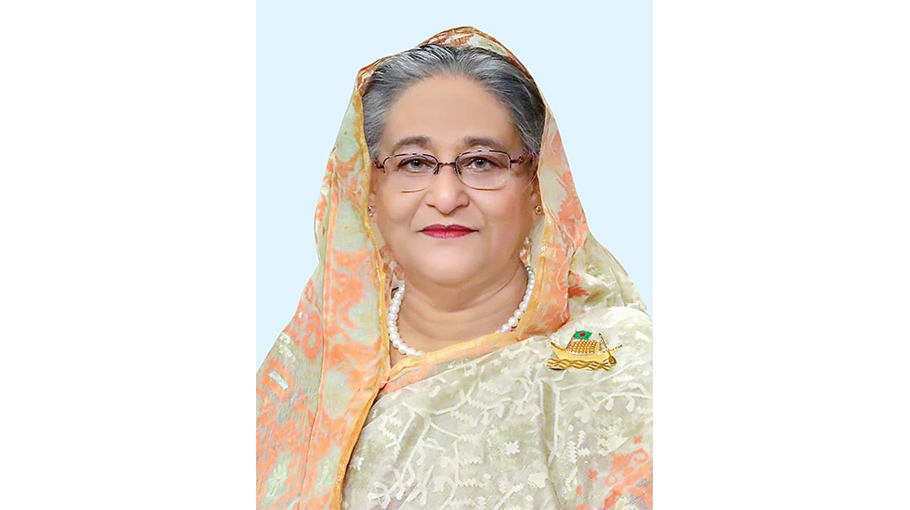ME conflict may hit Bangladesh economy: PM

Prime Minister Sheikh Hasina on Wednesday said in parliament that the conflicting situation in the Middle East may affect the economy of Bangladesh.
"It can be presumed that the brunt of the conflicting situation in the Middle East may affect the social, political, and economic aspects of Bangladesh as well as the whole world. This conflict may have some effect on the country's economy," she said.
The premier made this apprehension while responding to a question of Dr Samil Uddin Ahmed Shimul, elected from Chapainawabganj-1 constituency, during the Prime Minister's scheduled question answer session in parliament.
Sheikh Hasina said that there is the possibility of rise of the inflation slightly due to the instability in the world market, inconsistency in market management and the increase in global fuel prices.
In addition, the disruption of the commodity supply chain due to the conflicting situations may increase transportation costs related to exports primarily to Iran or neighbouring regions, she observed.
She noted that "exporters may face tougher competition for this, as the cost of manufacturing and supplying products increases."
The Leader of the House said that she has directed all concerned ministries or departments to keep eyes on the ongoing events in the Middle East and determine their own course of actions.
"I've given instructions to take necessary preparations, especially considering that this conflict might be prolonged and accessing impact of that over the sectors," she added.
The premier, however, said that there is uncertainty regarding the magnitude of this conflict and what
will be its economic impact. "To deal with the situation, there may be a need to support the sector with an emphasis on export trade," she said.
She mentioned that if the ongoing crisis in the Middle East gets more concentrated and prolonged, it might impact Bangladesh economically. "The government will take necessary measures in this regard," she said.
Mentioning that Bangladesh is against all forms of conflict, Sheikh Hasina said: "We believe in the path shown by Father of the Nation and the principle - "friendship to all, malice towards none."
In reply to Dr Samil Uddin Ahmed Shimul's supplementary question regarding TBC's expansion for commodity price control, the Prime Minister ruled out the possibility of appointing additional manpower in TCB, rather she said that it can be able to provide service people with this existing manpower.
"And we are taking measures keeping in mind that common people do not suffer," she said.
Mentioning that the government has taken appropriate steps to produce the required agri-products in the country, she said "We are also importing. No matter how much money it needs, we are spending, which is putting pressure on our reserves."
Sheikh Hasina said that people's welfare is the most important thing for her government.
She said that prices of essentials increased, but rural people, who can produce their own foods, are not facing that much hardship.
"Prices have increased, which has effect. Especially, low-income group of people are suffering. However, there is not much hardship for the rural people, who can produce foods for themselves. There is no outcry for them.
Still, our best efforts are on to keep commodity prices under control," she said.
While replying to independent lawmaker Abul Kalam from Natore, the Prime Minister said that the government always tries to lessen the suffering of common people.
The government has continued all kinds of activities to keep the prices of daily necessities within purchase capacity and it has been able to contain the abnormal rise in the prices of essential goods, she added.
Sheikh Hasina said that the pressure of import inflation is felt in the country as the increase in the prices of some products of the world market such as fuel oil, edible oil, wheat, mustard, various food products, consumer goods and industrial raw materials.
In addition, she said that the renewed conflict in the Middle East threatens to intensify the crisis.
"Even in this situation, we are making all-out efforts to control inflation and mitigate its impact on the country's people," she added.
The Premier also said that the recent fall in the exchange rate of the Taka is having an adverse effect on domestic inflation. "In this case, the crawling peg based currency exchange policy will soon be adopted to bring stability to the foreign currency exchange rate."
She hoped that this corridor-based system is expected to prevent abnormal fluctuations in foreign exchange rates and as a result, it will also help control inflation.



